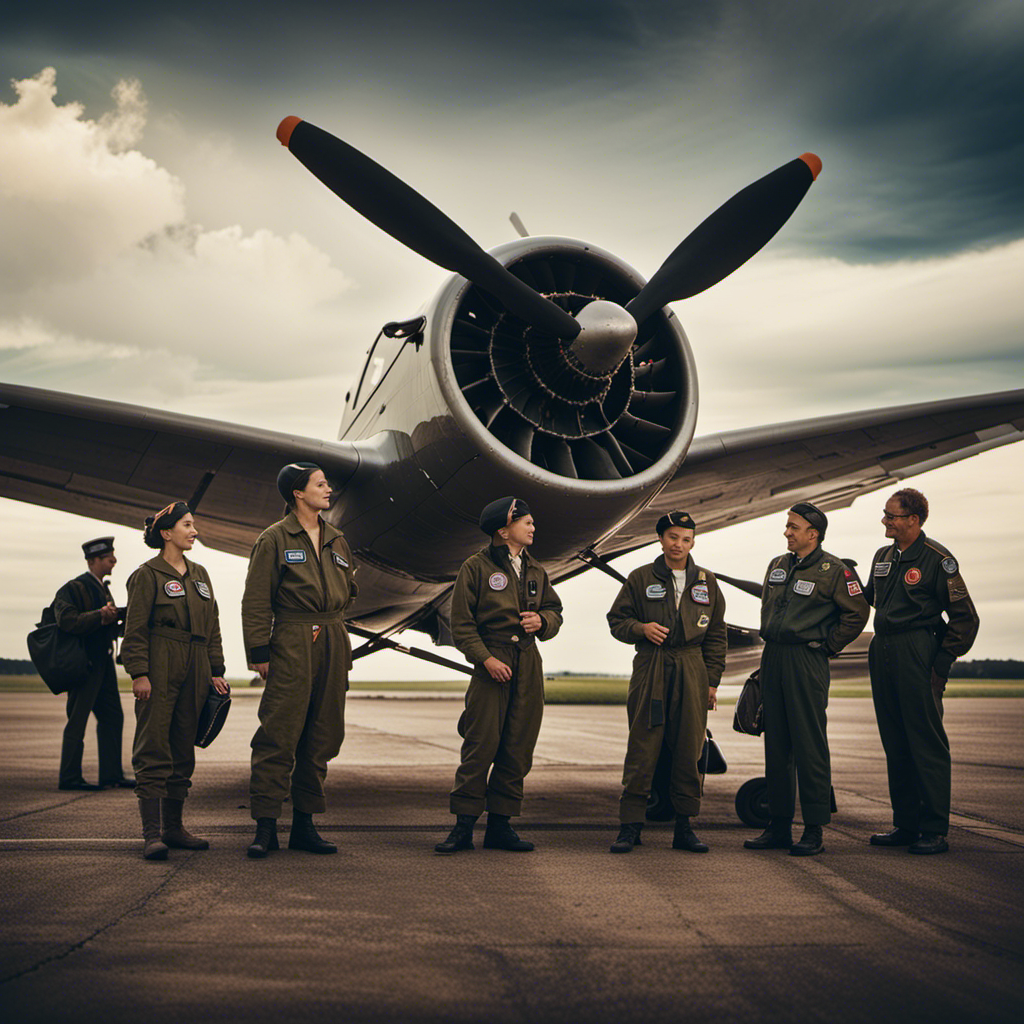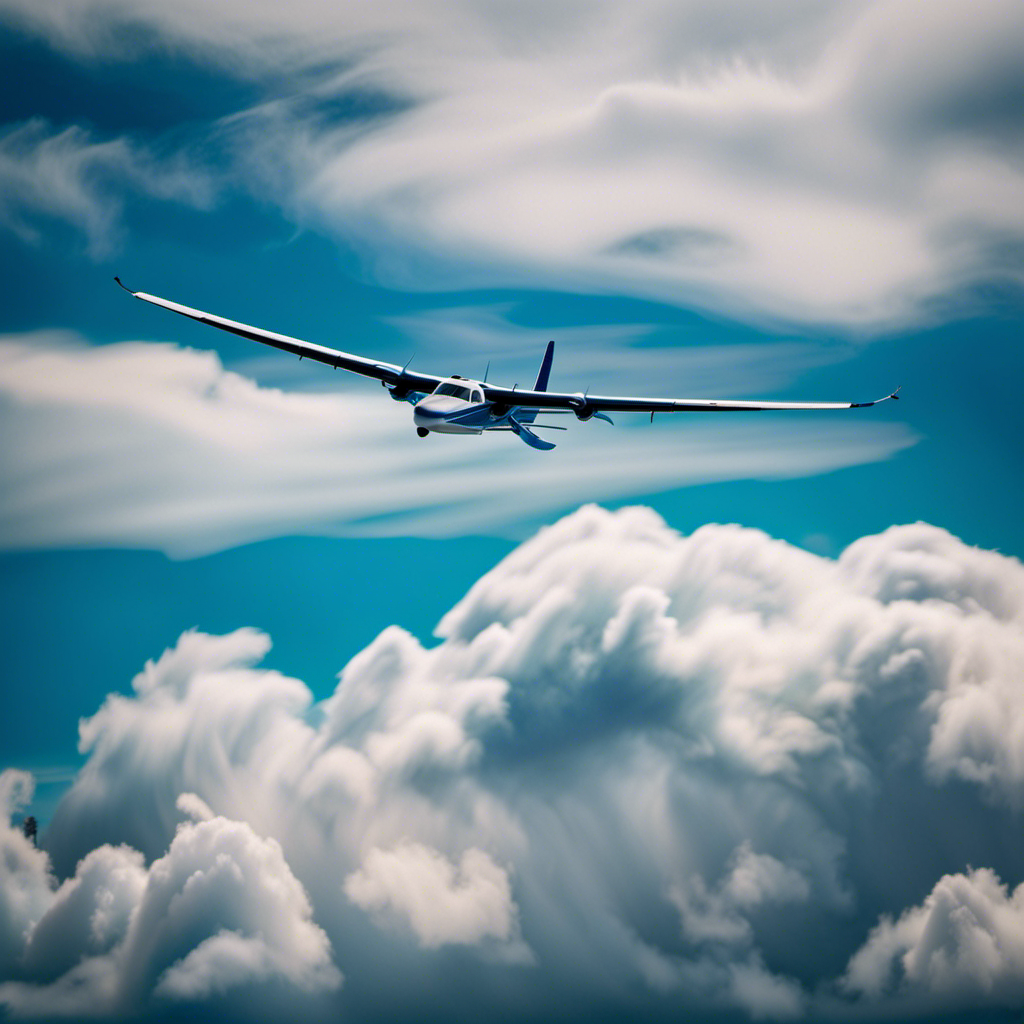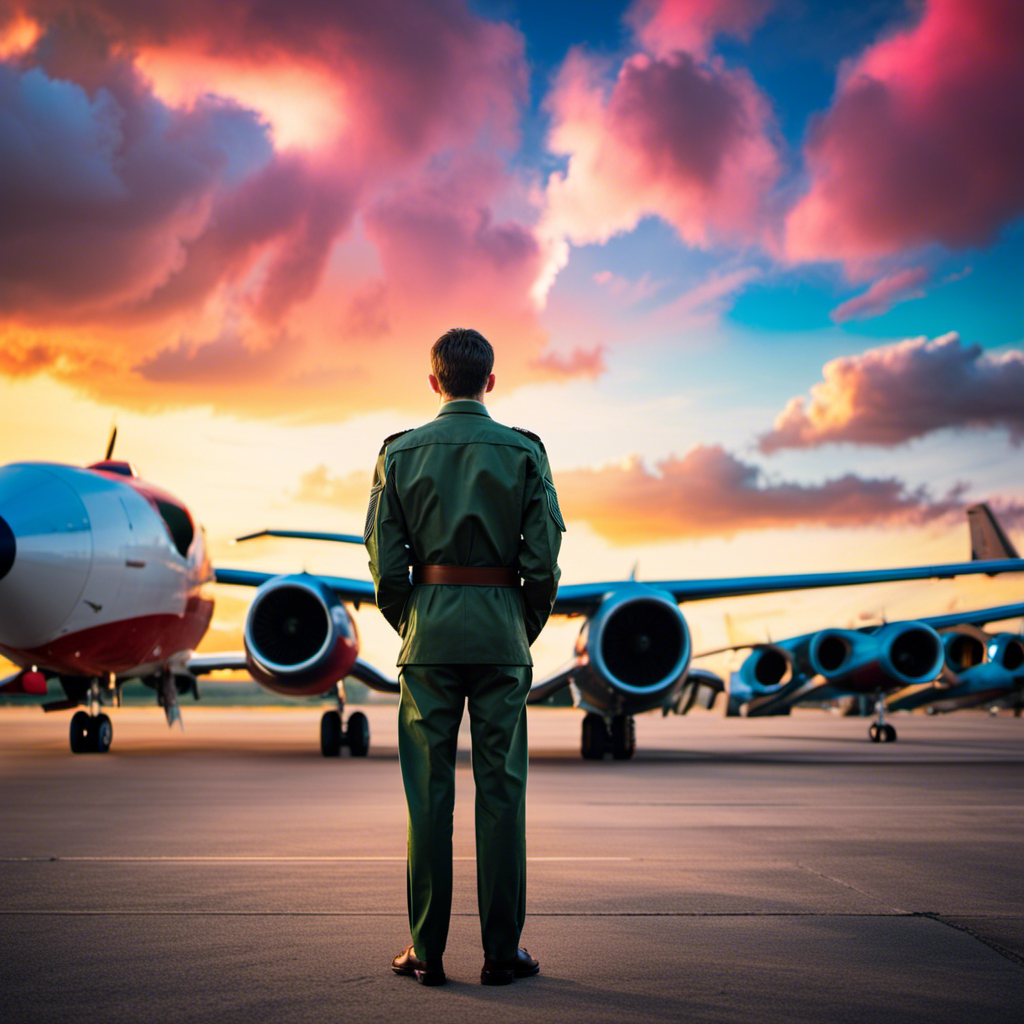As an avid fan of aviation, my ultimate dream has been to navigate the heavens as a pilot. However, one concern perpetually troubles me: the relentless march of time. Can I accomplish my goal before time runs out?
In this article, we’ll delve into the age limit to become a pilot, unraveling the restrictions, benefits, challenges, and misconceptions surrounding this intriguing topic.
So, fasten your seatbelts and join me on this journey to discover if age truly is just a number in pursuing your pilot dreams.
Key Takeaways
- Age is not a limiting factor in pilot training.
- Experience is more important than age in pilot training.
- Age should not discourage individuals from pursuing pilot training.
- Age should not hinder anyone from pursuing their dreams.
The Importance of Age in Aviation
The age of a pilot plays a crucial role in aviation safety. As a pilot gains experience and accumulates flight hours, they develop the necessary skills and knowledge to make critical decisions in the cockpit. However, age also has an impact on decision making. Studies have shown that as individuals age, their cognitive abilities may decline, affecting their decision-making processes. This is particularly important in aviation, where split-second decisions can have life or death consequences.
Experience, on the other hand, plays a vital role in aviation. Pilots with more flight hours have encountered a wider range of scenarios, allowing them to draw upon their experience and make informed decisions. Understanding the effects of age on decision making and the role of experience in aviation is essential for maintaining aviation safety.
Transitioning into the subsequent section, it is crucial to understand the age restrictions for pilot training.
Understanding the Age Restrictions for Pilot Training
Understanding the age restrictions for pilot training can be crucial for those who aspire to fly. The aviation industry has specific age requirements in place to ensure safety and competency in the cockpit.
Generally, the minimum age to obtain a private pilot’s license is 17 years old, while the minimum age to obtain a commercial pilot’s license is 18. However, these age restrictions can vary depending on the country and type of pilot license sought.
Age restrictions are put in place to ensure that individuals have reached a level of maturity and responsibility necessary to handle the demands of flying. It is important to research and understand these age requirements before embarking on a career in aviation.
Exploring the Benefits of Starting Early
Get a head start on your aviation career by exploring the benefits of starting early.
As someone who began my aviation journey at a young age, I have witnessed the advantages of early education in this field. Here are the key benefits to consider:
-
Increased Learning Capacity: Starting early allows for a longer period of time to absorb knowledge and develop skills, giving you a solid foundation for your future career.
-
Opportunity for Specialization: Early exposure to aviation allows you to explore different aspects of the industry, enabling you to identify your interests and specialize in a specific area.
By starting early, you lay the groundwork for long-term career prospects in the aviation industry. However, it’s important to note that starting later doesn’t mean it’s impossible to succeed.
Transitioning into the next section, we will delve into the challenges one may face when beginning their aviation journey later in life.
Overcoming the Challenges of Starting Later in Life
As an aspiring pilot who is starting later in life, it’s important to navigate the age limitations that may come with pursuing a career in aviation. Understanding the restrictions and requirements set by aviation authorities is crucial in order to make informed decisions and plan accordingly.
Developing effective strategies for pursuing a pilot career later in life can help maximize opportunities and overcome the challenges that may arise along the way.
Age limitations for older aspiring pilots
The age limit for older aspiring pilots is a hotly debated topic in the aviation industry. Some argue that older individuals may bring valuable life experience and maturity to the cockpit, while others express concerns about potential health issues and declining cognitive abilities. To better understand the current landscape of age restrictions in aviation, let’s take a look at the following table:
| Age Group | Training Availability |
|---|---|
| 40-49 | Limited opportunities |
| 50-59 | Fewer options |
| 60+ | Highly restricted |
As seen in the table, older pilot training becomes progressively more limited as age increases. While some airlines and flight schools may still accept older applicants, the opportunities become scarce. However, this should not discourage aspiring pilots, as there are strategies for pursuing a pilot career later in life.
Transitioning into the subsequent section, it is important to explore the various strategies that can be employed to overcome the challenges of starting later in life.
Strategies for pursuing a pilot career later in life
Don’t let your age discourage you from pursuing a career as a pilot later in life – there are strategies you can employ to overcome the challenges and achieve your goals.
Here are some strategies for career transitions and pursuing your aviation dreams:
- Embrace lifelong learning: Take advantage of training programs and courses to update your knowledge and skills.
- Network and seek mentorship: Connect with experienced pilots who can provide guidance and support throughout your journey.
- Surround yourself with a supportive community: Join aviation organizations or online forums where you can interact with like-minded individuals who understand your aspirations and challenges.
By implementing these strategies, you can navigate the career transition and overcome any age-related barriers that may come your way.
Now, let’s explore the role of physical fitness in pilot training.
The Role of Physical Fitness in Pilot Training
Physical fitness plays a crucial role in pilot training as it directly impacts a pilot’s performance and ability to handle the demands of flying.
Nutrition is a key aspect of physical fitness for pilots. A well-balanced diet not only provides the necessary energy for optimal performance but also supports overall health and mental clarity. Proper nutrition helps pilots maintain focus and concentration during long flights, reducing the risk of fatigue and inattention.
Along with nutrition, sleep is another vital component of physical fitness for pilots. Sufficient and quality sleep ensures that pilots are well-rested and alert, enabling them to make split-second decisions and react quickly to unexpected situations.
Transitioning into the discussion of mental preparedness and age restrictions, it is essential to consider how physical fitness sets the foundation for pilots to excel in these areas.
Mental Preparedness and Age Restrictions
To excel in mental preparedness and overcome age restrictions, you must prioritize your cognitive abilities and adapt to the challenges of pilot training. Strategies for mental preparedness are essential for aspiring pilots, regardless of age.
Contrary to common belief, age does not necessarily hinder one’s ability to succeed in pilot training. Debunking age stereotypes is crucial in paving the way for individuals who are passionate about aviation and have the necessary skills. The key lies in maintaining mental agility and adopting effective learning techniques.
By harnessing strategies such as regular practice, mental exercises, and staying updated with industry knowledge, aspiring pilots can enhance their cognitive abilities and thrive in their training.
Understanding the impact of age on pilot training programs provides valuable insights into tailoring training methods, ensuring an inclusive and effective learning environment.
The Impact of Age on Pilot Training Programs
Contrary to popular belief, age does not have to be a limiting factor when it comes to participating in and benefiting from pilot training programs. In fact, the impact of age on the aviation industry is not as significant as one might think.
Experience, rather than age, plays a crucial role in pilot training. Here are a couple of factors to consider:
-
Physical Fitness: While age may affect physical capabilities to some extent, it is not a fixed determinant. Many individuals in their later years maintain excellent health and can meet the necessary physical requirements for flying.
-
Cognitive Abilities: Age does not necessarily correlate with cognitive decline. With proper training and regular proficiency checks, pilots of all ages can maintain the necessary mental acuity to perform their duties safely and effectively.
Addressing Common Concerns and Misconceptions
When it comes to pilot training, there are many myths and misconceptions surrounding age. In this discussion, we will debunk these common concerns and shed light on the reality of age in pilot training.
Additionally, we will explore real-life stories of pilots who started their training at different ages, providing insights into the diverse paths one can take to pursue a career in aviation.
Debunking myths about age and pilot training
Don’t worry, you can still pursue pilot training even if you’re older than you think. Age should never be a barrier when it comes to pursuing your dreams of becoming a pilot. Let’s debunk some common age stereotypes and shed light on the truth about ageism in pilot training.
| Myth | Reality |
|---|---|
| Older individuals cannot handle the physical demands of flying. | Age does not determine physical fitness. As long as you meet the medical requirements, you can pursue pilot training at any age. |
| Airlines prefer young pilots. | Airlines value experience, skills, and knowledge. Age is not a decisive factor in pilot recruitment. |
| It’s too late to start a career as a pilot. | It’s never too late to follow your passion. Many successful pilots started their training later in life and have had fulfilling careers. |
These misconceptions often discourage individuals from pursuing their dreams. However, the truth is that age should not hinder anyone from embarking on a journey towards becoming a pilot. Now, let’s explore some real-life stories of pilots who started at different ages.
Real-life stories of pilots who started at different ages
Let’s hear some inspiring stories of pilots who began their training at various stages in life. Success stories of pilots who started their training later in life highlight the role of experience and maturity in pilot training.
These individuals prove that age is not a barrier to achieving one’s dreams of becoming a pilot. Take for example John, who at the age of 40 decided to pursue a career in aviation after years of working in a completely different field. Despite the challenges and sacrifices, he successfully completed his training and is now flying for a major airline.
His story, along with others like him, demonstrates that with determination and hard work, it is never too late to embark on a new career path. These success stories pave the way for opportunities in career transitions and second chances, providing hope for those who may be considering a change in their professional lives.
Opportunities for Career Transitions and Second Chances
If you’re looking for opportunities to transition careers or get a second chance at pursuing your dream of becoming a pilot, there are options available to you. Making a career change can be daunting, especially when retirement planning comes into play. However, the aviation industry recognizes the value of experienced professionals from other fields and offers programs specifically designed for career transitions.
Here are some options to consider:
- Flight training schools with specialized programs for career changers
- Airlines that offer mentorship programs for individuals starting their pilot career later in life
- Military pilot programs that accept candidates with prior career experience
These options provide a pathway for individuals to pursue their pilot dreams, regardless of their age or previous career. It’s never too late to make a change and embark on a new journey towards becoming a pilot. Age is just a number in pursuing your pilot dreams, as we will explore in the next section.
Conclusion: Age is Just a Number in Pursuing Your Pilot Dreams
Having explored the opportunities for career transitions and second chances in the aviation industry, it is clear that age should not be seen as a barrier to pursuing one’s pilot dreams.
Age can be viewed both as an advantage and a disadvantage, depending on how it is perceived and utilized. On one hand, older individuals bring a wealth of life experience, maturity, and discipline to the cockpit, which can enhance their decision-making skills and overall performance.
On the other hand, physical limitations and potential health issues may arise as pilots age, posing challenges that need to be managed effectively. However, with advancements in technology and medical practices, these disadvantages can be mitigated to a certain extent.
Ultimately, the aviation industry should focus on promoting inclusivity, recognizing the value that individuals of all ages can bring to the pilot profession. Age should only be seen as a number, not a definitive factor in pursuing one’s pilot dreams.
Frequently Asked Questions
Is there a maximum age limit to become a pilot?
No, there is no maximum age limit to become a pilot. Retirement age and aviation industry trends suggest that older individuals can still pursue a career in aviation as long as they meet the necessary requirements and pass the medical exams.
Are there any exceptions to the age restrictions for pilot training?
Exceptions to age restrictions for pilot training are rare. However, alternative career paths like air traffic control or flight instruction offer opportunities for those who may not meet the age requirements.
Can someone start pilot training at an older age and still have a successful career as a pilot?
Starting pilot training at an older age doesn’t necessarily hinder a successful career. Older pilots may face challenges in training and employment, but with determination, adaptability, and experience, they can still have promising career prospects.
What are the physical fitness requirements for pilot training?
What are the physical fitness requirements for pilot training? Do you have what it takes? To become a pilot, you must meet specific physical fitness requirements and undergo rigorous medical examinations.
Are there any mental health restrictions for aspiring pilots?
There are mental health restrictions for aspiring pilots to ensure the safety of passengers. Mental health can impact pilot training and performance, making it important to assess and address any mental health issues.
Conclusion
In the vast sky of pursuing one’s pilot dreams, age is merely a speck in the grand scheme of things. Like a seasoned bird soaring effortlessly through the clouds, age should never hinder one’s ability to take flight.
From the importance of starting early to the opportunities for career transitions, the clock may be ticking but it is never too late to unravel the age limit and embrace the exhilarating journey of becoming a pilot.
So spread your wings and let your dreams take flight, for age is just a number in the endless sky of possibilities.
Orion, better known as “Jetstream,” is the voice that brings the stories of the skies to life. His fascination with aviation began at a young age, sparked by his father’s tales of flying and adventure. Orion’s journey into the world of gliding was serendipitous, and from the moment he took his first glider flight, he knew he had found his calling.










